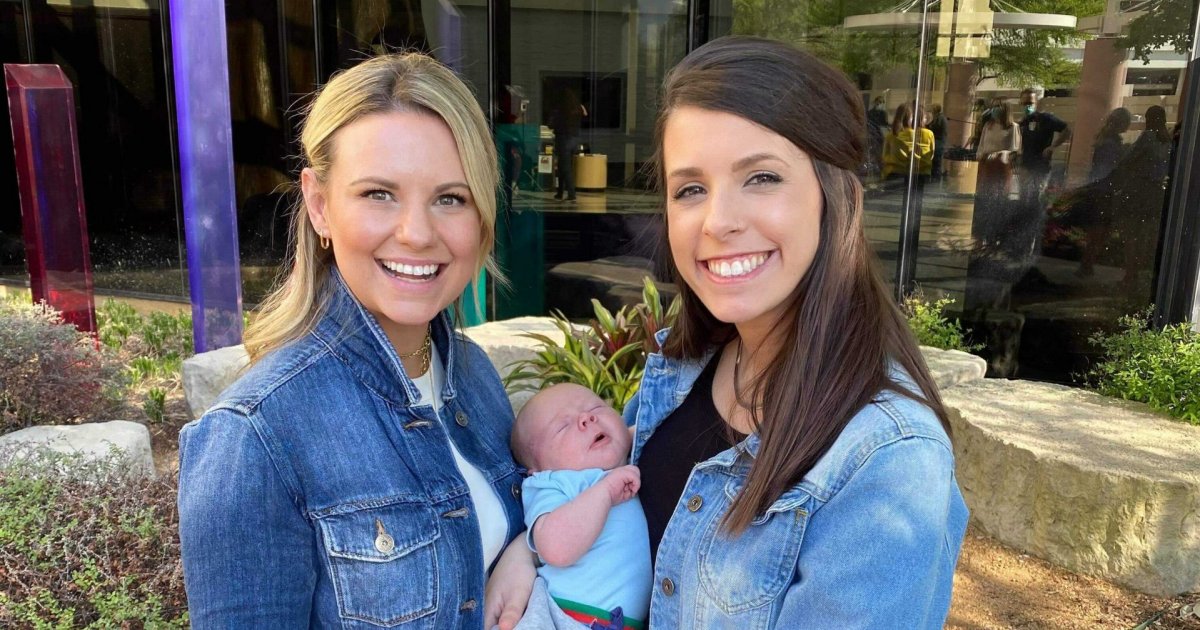Dreaming of Motherhood
- Erica Gray realized her dream of becoming a mother with surrogacy even after a cervical cancer treatment left her unable to carry a child.
- Cervical cancer can be treated with a hysterectomy, but this treatment affects fertility, so it is important to consider your options.
- When women are diagnosed with cancer in their childbearing years, fertility preservation should be a part of the conversation with their doctors.
Gray was 27 when she got the call from her doctor saying she had stage three cervical cancer. After careful consideration, Gray decided a radical hysterectomy was her best course of action. The surgery left Gray cancer-free and unable to carry a child a wholly unfair trade-off.
Read MoreThe two young women hit it off instantly, and moved forward with the surrogacy.
“We sat there for three hours,” Birdwell told CBS. “We were hugging and they’re like ‘we’re gonna call the agency tomorrow.'”
Gray’s little boy arrived in March. Her dream of motherhood now a reality, she’s looking forward to her future with baby Richard.
“It’s so incredible,” Gray said. “I mean, I just can’t wait to watch him grow.”
Fertility and Cancer Treatments
Cervical cancer begins in the cells lining the cervix the lower part of the womb (uterus). Treatment options for cervical cancer include surgery, chemotherapy and/or radiation therapy. Erica Gray had an “aggressive” treatment called a radical hysterectomy which generally removes the uterus, the tissues next to the uterus, the cervix and the upper part of the vagina which left her unable to carry children.
Other forms of cancer treatment can also affect fertility. Some types of chemotherapy, for example, can destroy the eggs in your ovaries, making it impossible or difficult to get pregnant. Whether or not chemotherapy makes you infertile depends on the type of drug and your age since your egg supply decreases as you get older.
Dr. Jaime Knopman talks about fertility preservation after a cancer diagnosis.
"The risk is greater the older you are," reproductive endocrinologist Dr. Jaime Knopman tells SurvivorNet in a previous interview. "If you're 39 and you get chemo that's toxic to the ovaries, it's most likely to make you menopausal. But, if you're 29, your ovaries may recover because they have a higher baseline supply."
Dr. Knopman tells SurvivorNet that when women are diagnosed with cancer in their childbearing years, fertility preservation needs to be a part of the conversation with their doctors.
"Everyone in their reproductive years should be advised of their options," Knopman says.
The Emotional Impact of Hysterectomies
Treatment paths for cervical cancer may vary depending on the stage of the cancer and whether or not a woman wants to maintain her fertility. Like Erica Gray, a hysterectomy could be the best option for cervical cancer treatment. But it’s not the best option for everyone, and there is much to consider since it can result in total infertility.
Adjusting to Life after Hysterectomy what to expect, and how to cope.
Dr. Jeanne Carter is a sexual psychologist at Memorial Sloan Kettering Cancer Center. In a previous interview with SurvivorNet, she explains that hysterectomies may have a positive or negative emotional impact depending on a patient’s relationship with the body part that is removed.
“Having those parts removed can be very devastating for them especially in some of our young patients who might have wanted those organs for reproductive options and may have to build families in different ways,” Dr. Carter said. “Any time a woman loses part of her body, it’s what that part of the body symbolized to them that really affects how they feel and adjust to it.”
Learn more about SurvivorNet's rigorous medical review process.


